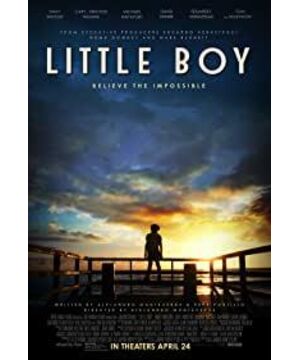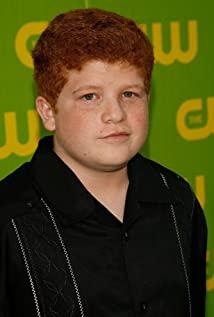Yesterday at noon, I watched this movie during the lunch break at work. The brief introduction of the story is probably that the little boy’s father became a Japanese prisoner of war in World War II. The little boy firmly believed that he could bring his father back from the battlefield, and finally brought it back! After watching the introduction of the movie, I thought that this must be a story that took place on the battlefield. What was unexpected is that only a few black-and-white scenes of war were interspersed in the movie. The whole story unfolded completely in a warm life situation. The little boy believes that his beliefs can bring his father back. He wants to draw the Japanese islands over with the "magic power" of his hands and stop the war (there is the rhythm of Dafa in the smiling and proud rivers and lakes). Seeing this, I think this movie is so stupid. , I think the theme of the movie should be "faith&truth".
Then a Japanese came to the town. The Americans who lost their loved ones in the war vented all their hatred on this Japanese, smashing windows, burning houses, rowing cars, and threats. . . At that moment, it was very similar to our Chinese attitude towards Japan. The pastor said to the little boy, "If you want to save your father, you must become friends with this Japanese." The belief of the child was infected, and the two became friends later. My brother didn’t understand the relationship between the boy and the Japanese. The young people in the town threatened and beat the Japanese. When the movie is here, I think the theme of the movie should be "war&humanity".
The director uses a seemingly absurd but full of positive energy story (faith) as a carrier to narrate the Second World War while portraying the human nature in the war. When I watched movies, I kept thinking, what did this Japanese do wrong, and how should these young people treat this Japanese like this? But what did these young people do wrong to make them lose their loved ones? War is undoubtedly the source of all evils, and the results of entanglement of interests between political groups have all affected ordinary people. As the people at the bottom, they are the ones who pay for the war!
In the movie, the United States dropped two atomic bombs on Japan, and the war really ended. The little boy who insisted on sucking the Japanese islands from the Japanese islands with the "magic power" of his hands on the beach every day moved everyone. One of the two atomic bombs was named " "Little boy", I think the ultimate meaning of the director's filming of this film is the Americans' belief in anti-war. Aren't all of our Chinese film and television works hitting Japan? However, the director made this film from the perspective of respecting and understanding human nature. The Japanese portrayed in the film are flesh and blood. He misses his children and keeps the photos of them when he was a child. He loves his own nation and gives The little boy tells the legend of his own nation. He loves his own culture. All the traditional decorations are kept in the house. When he is attacked by a person for no reason, he is calm and firm, with helpless and angry eyes in his eyes.
It is not so much that I was infected by this movie as it was by the director's attitude. I always believe that the root of all culture and art should be respect for human nature, and the spirit of creating war-related works of art should be humanitarian. Nothing is more important than "people". The director of this film has done it. There are so many excellent Westerners. The works are done. Cherish the current peace, cherish the current life, love the world and the people around you!
View more about Little Boy reviews











